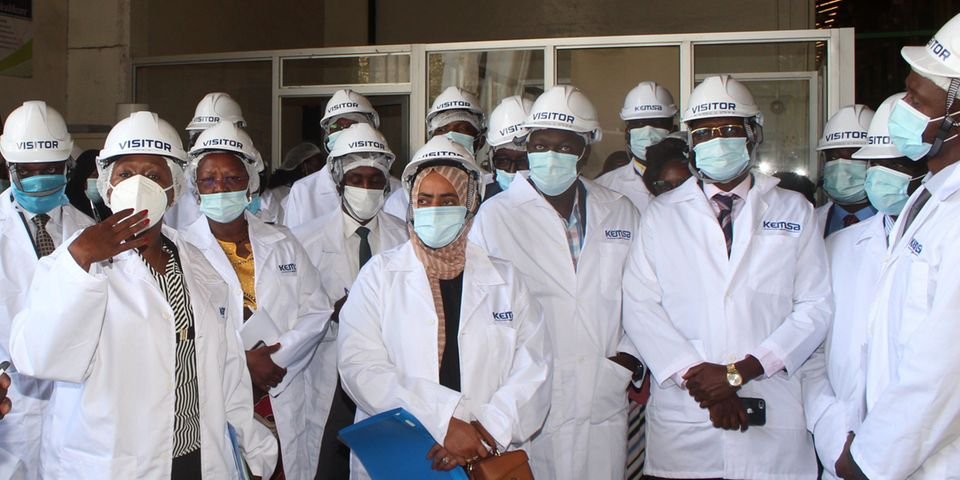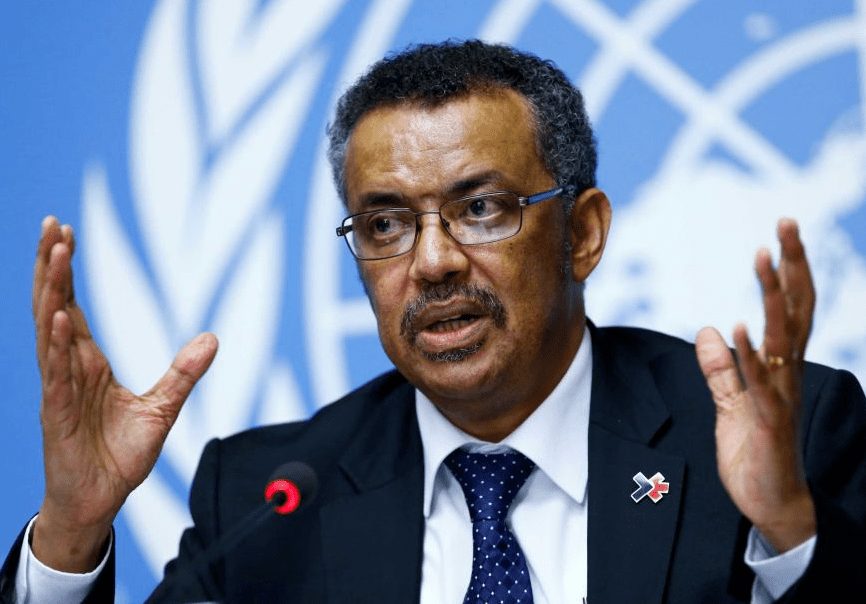As fears spread in March that African countries risked losing out in the scramble for scarce Covid-19 supplies, Kenya’s spy agency mysteriously managed to secure 100 ventilators and other health equipment, a parliamentary report now reveals.
The report by the National Assembly’s Health committee, which investigated the spending of funds allocated to the Ministry of Health to fight the pandemic, in particular by the Kenya Medical Supplies Authority (Kemsa), did not establish how the NIS acquired the consignment.

The deadly pandemic has redirected spooks, usually preoccupied with securing national security, fighting terrorism and international crime, into a new kind of covert operation that has dragged on for six months and is now centred on “stealing” vaccine development formulae.
Based on reported accounts by some intelligence officers who played a role in the global race for the Covid-19 items, as the global shortage peaked, underhand dealings and out-bidding rivals peaked. The agencies also resorted to covert ops and outright dirty tactics to secure medical products and technologies for their countries.
In March, Israel reportedly acquired 27 ventilators and had targeted at least another 160 in the next few days.
For the entire operation, however, the Israeli had projected to lay their hands on 7,000 ventilators.
The world is selling [ventilators] through cracks.
Typical of the underworld, there were no details on where the equipment was coming from, just as the Kenyan lawmakers realised about the consignment brought in by NIS.
Mossad initially flew into Israel a consignment of 100,000 coronavirus test kits on March 19 and some four million more kits from a number of countries were expected.
The agency also helped obtain 25,000 N95 respiratory masks and 10 million surgical masks from unspecified countries.
On April 1, The Times of Israel quoted a senior Mossad officer detailing the intricacies of the aggressive covert battle to secure ventilators “at all costs”.
“I have overseen many operations in my life and I’ve never dealt with such a complex operation,” the Mossad officer, identified only by the Hebrew initial “Het”, was quoted as saying.
It would appear Kenya’s intelligence agency was, too, looking out for such “cracks”, given the disclosure that it brought into the country 100 ventilators.
Het went on: “We are world champions in operations and we know how to manage complex operations. We are utilising our special connections to win the race and perhaps do what the whole world is doing – lay our hands on stocks ordered by others”.
According to the report, Het said his office was receiving more than 2,000 leads every day.
Some checked out, in others Israel was beaten to the consignments by more suave countries and yet others were false.
“We had a country in Europe where our trucks arrived at the factory’s doors but another European country was ahead of us and loaded it up,” Het recollected.
“We also had a situation where we had equipment we purchased on a plane but it had to be unloaded because the plane didn’t get permission [to take off] due to the embargo,” Het disclosed.
Obtain technology
Apparently the Israeli government had tasked the Mossad with obtaining more than 130,000 objects, including gas masks, virus test kits, medicine, protective gear and ventilators.
And it wasn’t about importing commodities alone – Mossad reportedly helped Israel obtain technology that enabled many of the country’s laboratories to conduct coronavirus tests as well as produce ventilators.
Mr Cohen had been in close contact with the then Israeli health minister, who tested positive for the coronavirus in April.
The intelligence agencies had forewarned the world about the possibility of a pandemic that “could lead to massive rates of death”.
That was last year in January, when the United States intelligence community gave a briefing on “worldwide threat assessment of the US intelligence community, which had a section on global Health”.
Ill-prepared world
“We assess that the United States and the world will remain vulnerable to the next flu pandemic or large-scale outbreak of a contagious disease that could lead to massive rates of death and disability, severely affect the world economy, strain international resources and increase calls on the United States for support,” read the report dated January 29, 2019.
It warned the world was ill-prepared to confront infectious diseases, which would partly be fuelled by expansion of international travel.
“Although the international community has made tenuous improvements to global health security, these gains may be inadequate to address the challenge of what we anticipate will be more frequent outbreaks of infectious diseases because of rapid unplanned urbanisation, prolonged humanitarian crises, human incursion into previously unsettled land, expansion of international travel and trade, and regional climate change,” the report concluded.
A year after the report, which also noted the increase in the number of outbreaks was partly because pathogens originally found in animals had spread to human beings, the world was hit by Covid-19, which originated from Wuhan, China.
And even the timing of the declaration by the World Health Organization (WHO) labelling the coronavirus outbreak a pandemic – a disease that spreads in multiple countries around the world at the same time – has been shrouded in spy mystery.
WHO chief Tedros Adhanom Ghebreyesus had to fight off reports by German media outlet Der Spiegel that Germany’s federal intelligence service had information that Chinese President Xi Jinping had on January 21 personally called the WHO director-general seeking to delay issuing of a global warning on the coronavirus.
In a statement on May 9, Dr Ghebreyesus termed the reports of the January 21, 2020, telephone conversation “unfounded and untrue”.
“Dr Tedros and President Xi did not speak on January 21 and they have never spoken by telephone. Such inaccurate reports distract and detract from WHO’s and the world’s efforts to end the Covid-19 pandemic,” read the WHO statement.

But Newsweek had too reported that a US Central Intelligence Agency report had claimed, “China threatened the WHO that the country would stop cooperating with the agency’s coronavirus investigation if the organisation declared a global health emergency” over coronavirus.
It was not until January 28, 2020 that Dr Tedros met President Xi Jinping to share the latest information on the novel coronavirus 2019 outbreak and reiterate their commitment to bring it under control, according to an official WHO statement.
Newsweek in May reported that the CIA believes China tried to prevent the World Health Organization from sounding the alarm on the coronavirus outbreak in January – a time when Beijing was stockpiling medical supplies from around the world.
A CIA report, the contents of which were confirmed to Newsweek by two US intelligence officials, said China threatened the WHO that the country would stop cooperating with the agency’s coronavirus investigation if the organisation declared a global health emergency.
On April 9, Reuters reported Swedish Getinge, one of the world’s biggest makers of medical ventilators, said earlier this week it was ramping up ventilator production capacity this year by 160 percent to 26,000 units to meet demand fuelled by the pandemic.
Credit: Source link